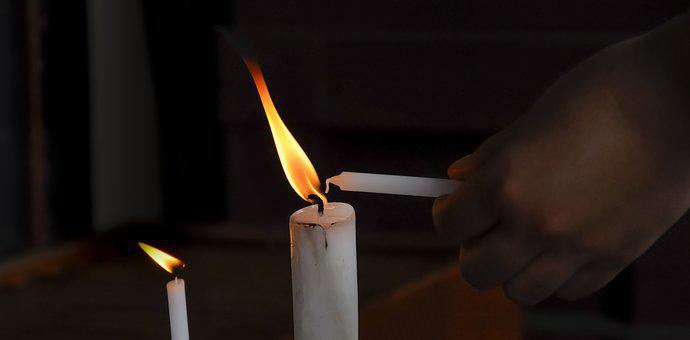Sunday July 24, four texts will be read:
First reading: Book of Genesis (Gn 18, 20-32).
Psalm 137.
Second reading: Letter of Saint Paul to the Colossians (Col 2, 12-14).
The Gospel according to Saint Luke (Lk 11, 1-13).
Luke 11, 1-13
It happened that Jesus, in a certain place, was praying.
When he had finished, one of his disciples asked him:
“Lord, teach us to pray,
as John the Baptist also taught his disciples. »
He answered them: “When you pray, say:
“Father, hallowed be thy name, thy kingdom come.
Give us the bread we need for each day.
Forgive us our sins, for we ourselves also forgive all those who trespass against us.
And let us not enter into temptation.” »
Jesus said to them again: “Imagine that one of you has a friend and goes to him in the middle of the night to ask him:
“My friend, lend me three loaves, because one of my friends
came home from a trip, and I have nothing to offer him.”
And if, from inside, the other responds:
“Don’t bother me! The door is already closed;
my children and I went to bed.
I cannot get up to give you something.”
Well ! I tell you: even if he does not get up to give out of friendship, he will get up because of this friend’s lack of embarrassment,
and he will give her everything she needs.
I say to you: ask, you will be given;
seek, you will find; knock, it will be opened to you.
Indeed, whoever asks receives; who seeks finds ; whoever knocks, we will open.
Which father among you, when his son asks him for a fish, will give him a snake instead of the fish? or give him a scorpion when he asks for an egg?
If therefore you, who are bad, know how to give good things to your children, how much more will the Heavenly Father give the Holy Spirit to those who ask him! »
Because the Our Father has become the central prayer of Christians, we tend to read it for itself, without remembering the context in which it is set. It all starts with a request from an anonymous disciple in an unknown location: “Teach us to pray. » From the prayer of Jesus, which was personal, a collective prayer is born.
Much more, a prayer that defines the community: like John the Baptist, who had instilled in his disciples a distinctive way of addressing God, Jesus is summoned to teach “his” prayer. It does this in two stages: by transmitting content, then by suggesting a way to pray.
All prayers pattern
The content is the well-known famous prayer. But what follows is less so, because Jesus continues, here again in two stages, with a parable and its explanation, introduced by the formula which indicates a teaching, “I tell you”. This structure makes the Our Father not the only Christian prayer, but a kind of model for all prayers, which must start from two principles: the fact that God is Father, and that we must therefore not hesitate to adopt a demand attitude.
Through the parable, Jesus affirms that we must dare to complain. He takes the example of the friend who, in the name of affection, cannot refuse a request which he would nevertheless have all the good reasons in the world to decline: it comes in the middle of the night and it concerns a stranger, friend of a friend. With the statement that follows, Jesus comments on the little narrative by constructing an argument a fortiori : if no one refuses, with all the more reason God, who is father.
But all is not so simple in this passage. Overall, we understand where Jesus wants to go, but his presentation is mixed. If the example provided by the parable is clear, it can be read in two ways. On the side of humanity which is crying out, as we have just done, but also on the side of God. If he gives, it is not because of the positive feelings of friendship, but, as the text rightly underlines, out of weary war, in the name of the ” shamelessly “ (a funny word in Greek, which translates the absence of regard, the lack of modesty, even a certain disrespect) of those who demand.
A spiritual good
And what about those strange examples of the snake and the scorpion! Why consider this case of a father filled with evil? Something dark plays out in prayer, detectable in the famous request of the Our Father on the “temptation”, as well as in this cookie-cutter statement, “you who are evil”. Note also the difference between very optimistic statements about the result of prayer (“ask and it will be given to you”) and this sequel.
Jesus does not say that God will always grant, but that he will not offer anything bad. His conclusion, moreover, relates to a spiritual good – the gift of the Holy Spirit – and not to a material good.
This gift of the Spirit is the only promise that Jesus makes; it corresponds well to what we have just said about the portrait of humanity, drawn here as a watermark. They are the lost, who ask even insistence, seek a way, knock to enter the house. To these ambiguous beings, God – presented exceptionally as “Father in Heaven” – will eventually open, thanks to the Spirit, which, in Luke, is the transforming force that leads to God.
We wish to say thanks to the author of this article for this remarkable web content
Biblical meditation: the gift of the Spirit
Visit our social media profiles and also other pages related to themhttps://nimblespirit.com/related-pages/

